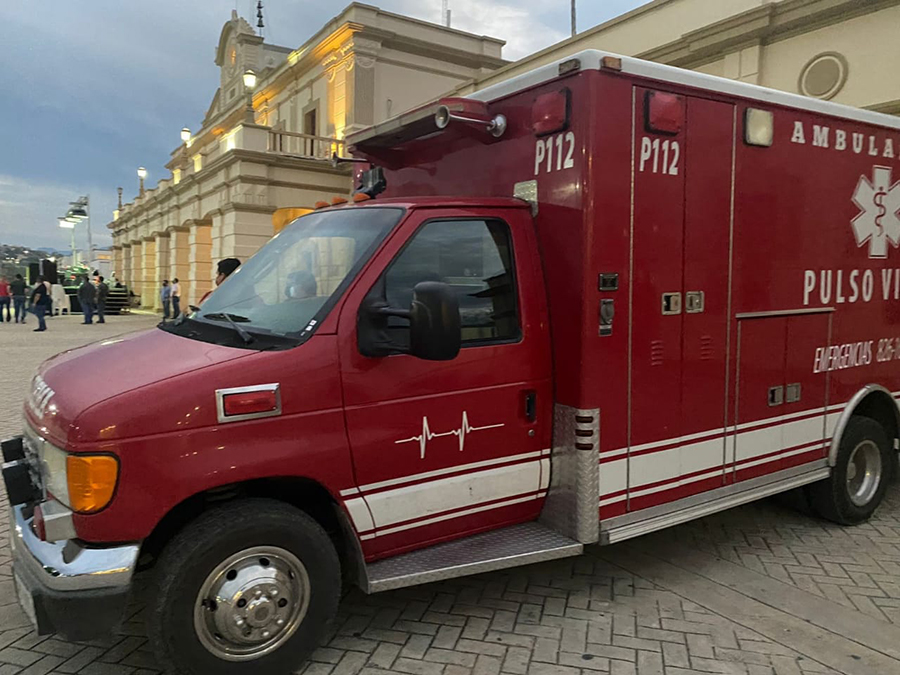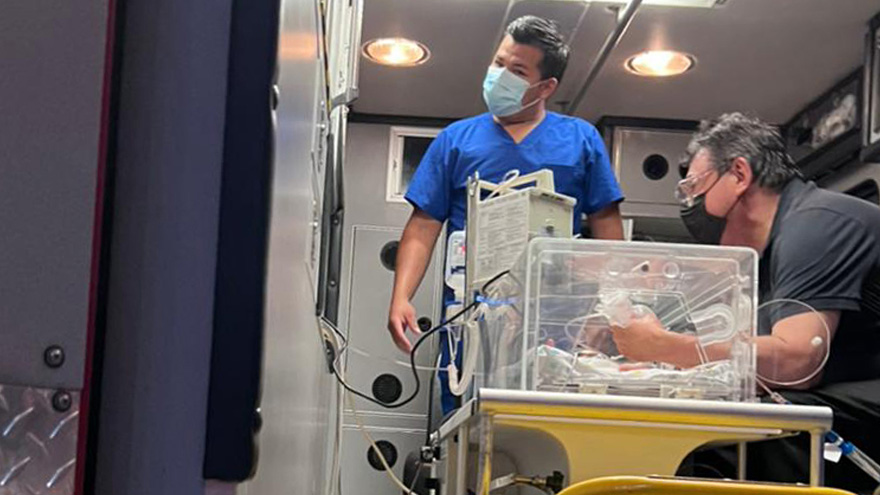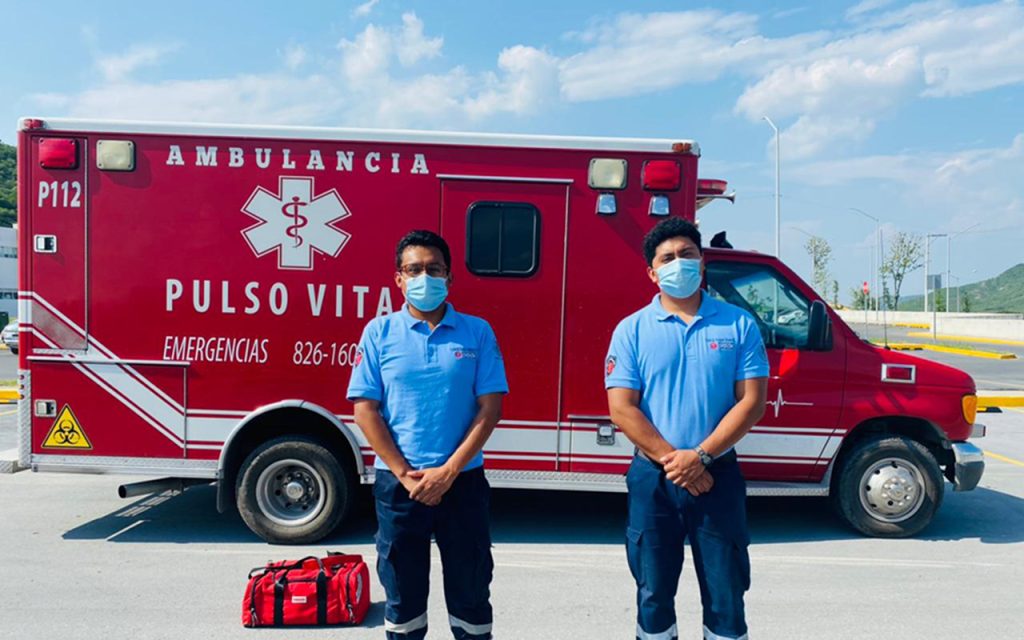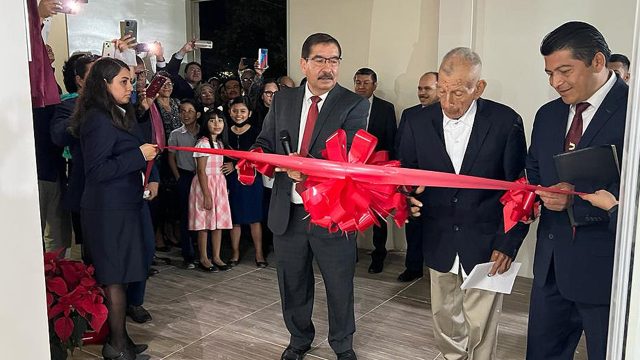Medical student runs ambulance services to meet regional needs.
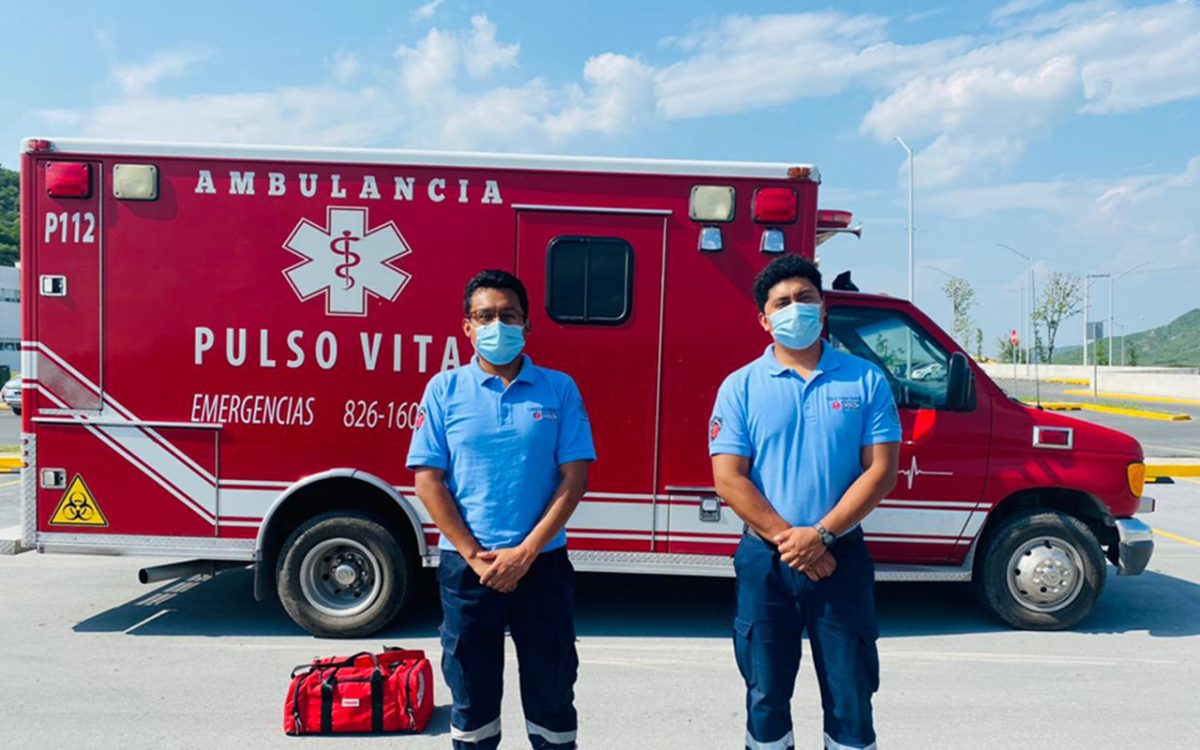
For the past two years, Gustavo Rivera, a third-year medical student attending Montemorelos University in northern Mexico, has been running his own private ambulance service.
Seeing the demand for ambulance service in Montemorelos when he began studying, Rivera pulled some savings together and obtained a loan to purchase a Type III ambulance, which is equipped to provide urgent care services during the transport of patients. He runs the private ambulance, called Pulso Vital (or Vital Pulse), with his wife and two other certified paramedics who also study at Montemorelos University.
“From the moment I began volunteering as a paramedic, it just awakened the desire to help others in need,” Rivera said. “We want to ensure safeguarding the well-being of those who need us through Vital Pulse.”
His passion to help others stems from his work as a certified paramedic for the Red Cross in his home state of Tabasco in southern Mexico. He decided to study medicine and made his way to Montemorelos.
“One day while I was dining with my wife, we talked about how scarce ambulances are in Montemorelos, and that drove us to plan for one,” Rivera said. Government-run ambulances serve public hospitals and the community, but sometimes people had to call Monterrey, more than 80 kilometers (50 miles) away, to ask for an ambulance transport. “The demand is very high even with the local Red Cross and government-run hospitals and clinics, which offer those services when they can,” he said.
As a private company, Vital Pulse is certified by the State of Nuevo Leon Secretary of Health and by the Federal Committee for Protection from Sanitary Risks (COFEPRIS), and it’s currently one of two private ambulance services that cater to the more than 60,000 inhabitants in the region.
In 2021, Vital Pulse provided more than 170 ambulance services and more than 190 in 2022. The demand is growing more and more, Rivera said. “Many in the region do not know that they can opt for private ambulance service, and they don’t have to wait for only the government ones.” Slowly people are finding out, he added.
In addition, the ambulance has also been used for simulation classes held by the health sciences department on campus for students to practice.
Rivera plans to purchase another ambulance and pursue urgent care medicine and intensive care studies as part of his medical degree. He expects to obtain his degree in four years.
The original version of this story was posted on the Inter-American Division news site.


